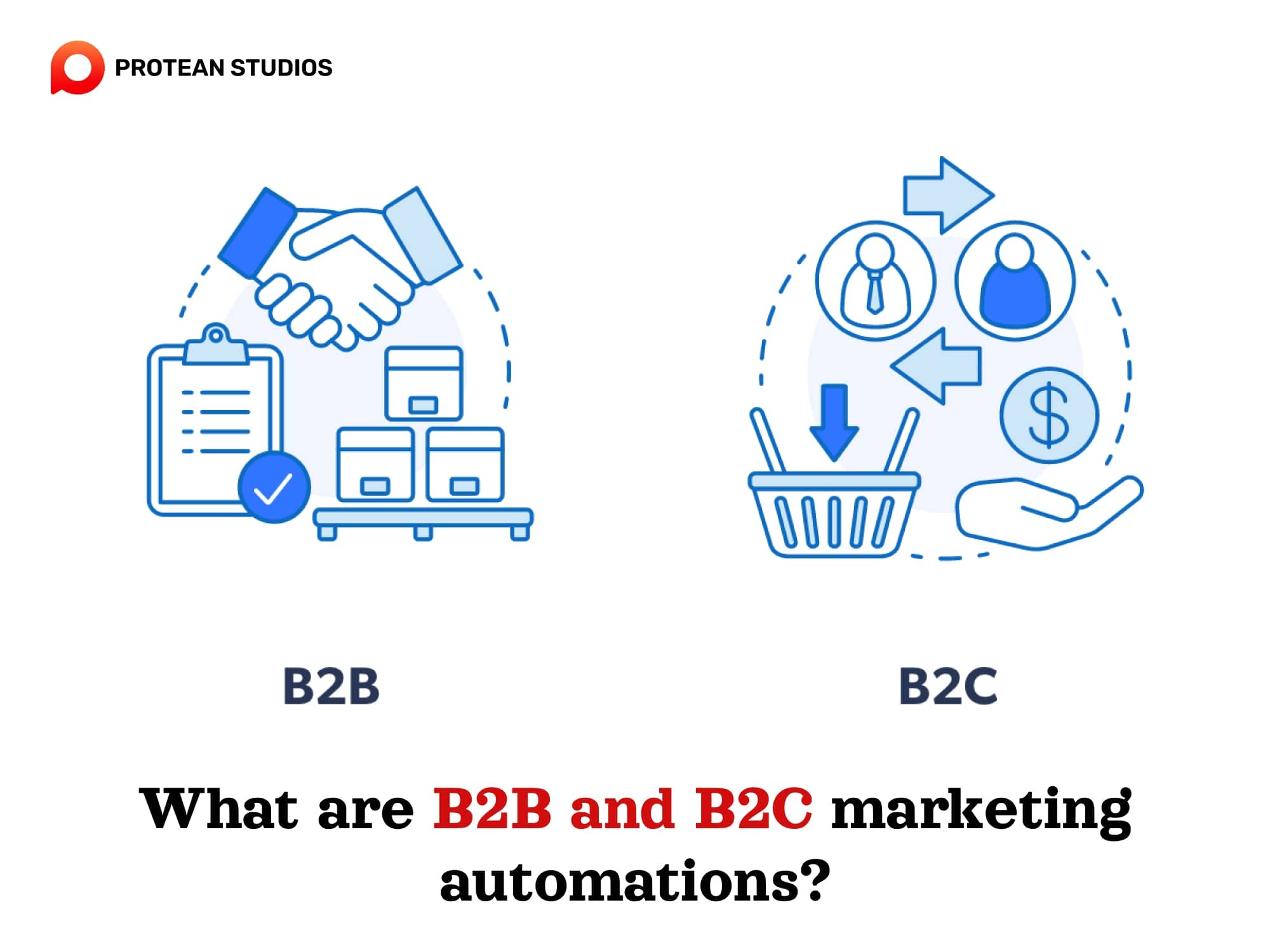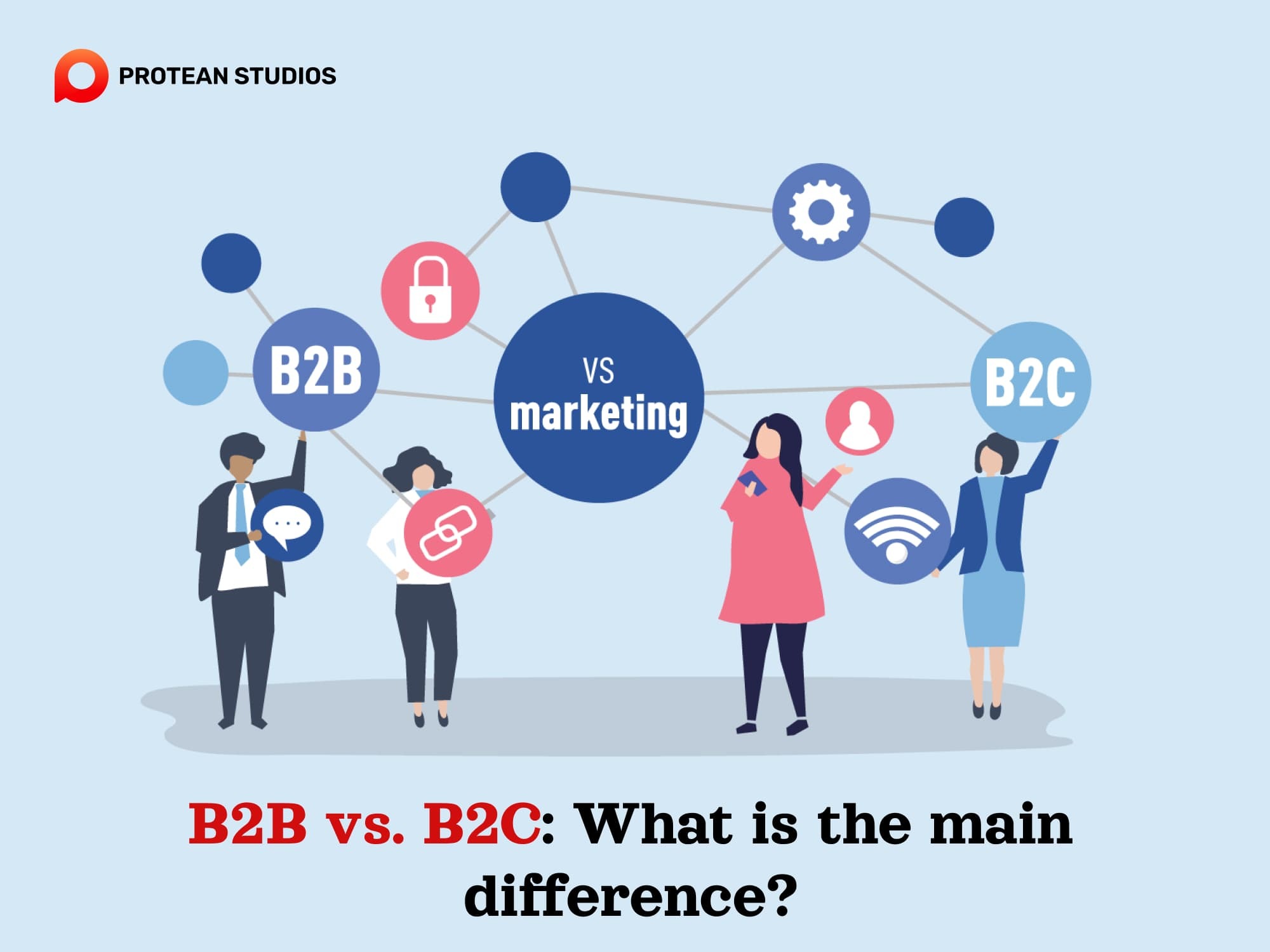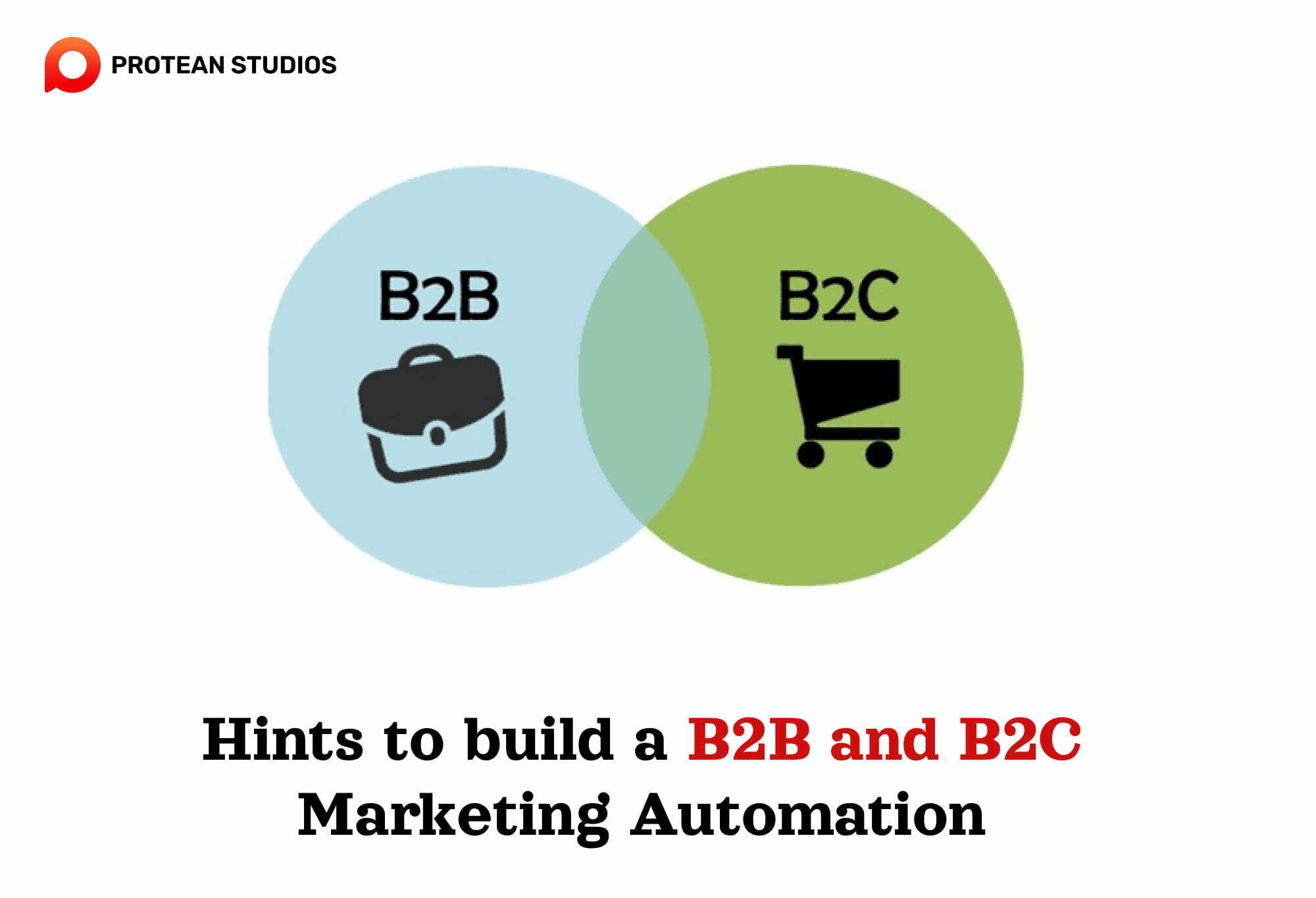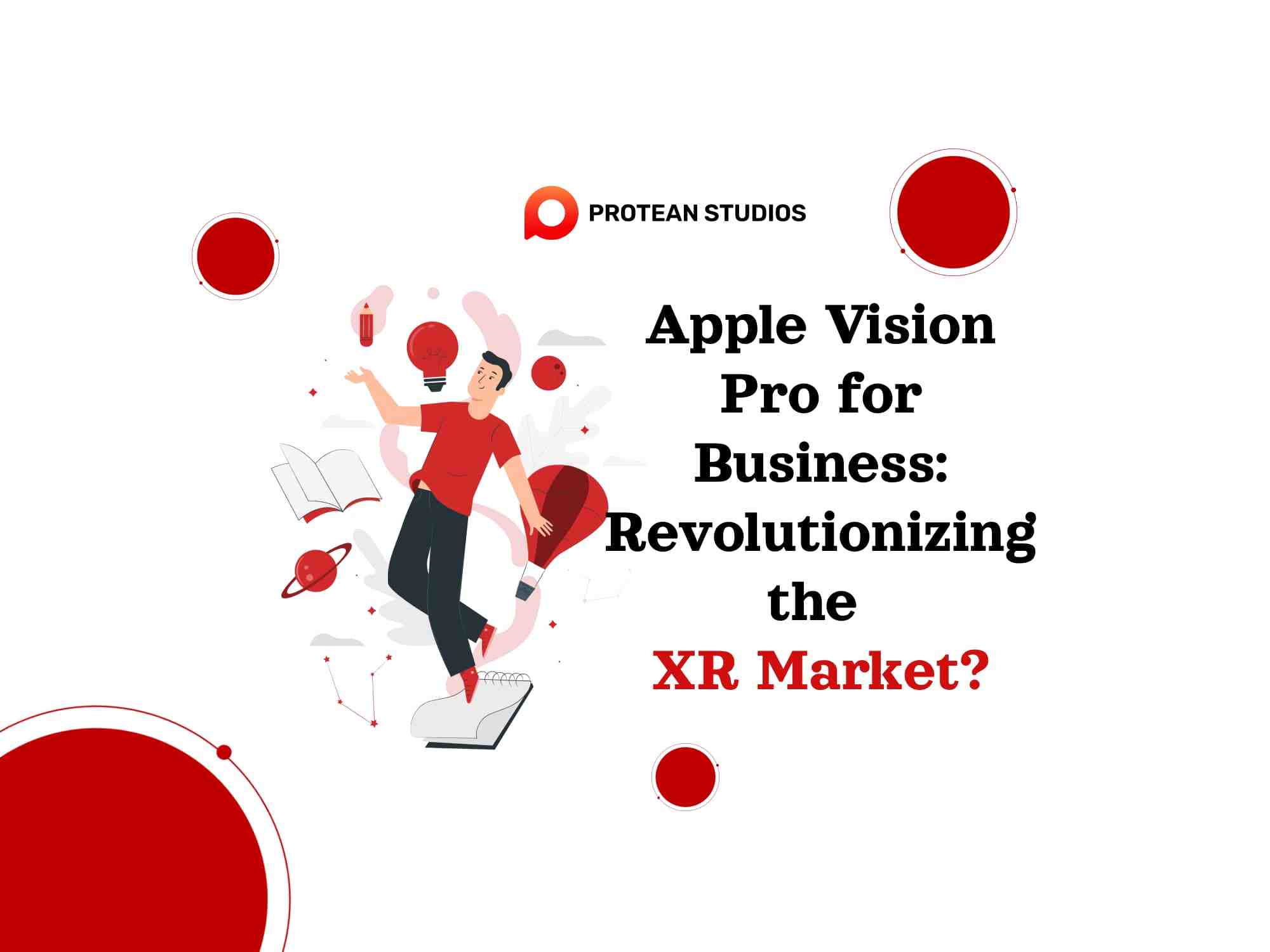Marketing automation is the way that businesses use smart software and technology to automate repetitive tasks and optimize marketing campaigns. Thus, it can help both business-to-business (B2B) and business-to-consumer (B2C) marketers generate more leads, convert them into real customers, and keep them longer.
This blog will set the stage for your deeper exploration into B2B and B2C marketing automation. And then, highlighting the key points and benefits readers can expect to gain.
What are B2B and B2C marketing automations?
B2B marketing is marketing to other businesses to enhance business performance within the context of business-to-business transactions. Yet, B2C marketing is marketing to customers, and its main target is to boost sales and approach individual customers. In particular, you can see the key features of B2B and B2C marketing automation as follows:
B2B Marketing Automation
Focus: building relationships and nurturing leads. B2B sales cycles are longer, so automation focuses on educating potential customers and building trust.
Goals: Generate qualified leads, convert leads into customers, and increase customer lifetime value.
Metrics: lead quality, lead score, conversion rate, and customer lifetime value.
B2C Marketing Automation
Focus: driving conversions and sales for a company. B2C sales cycles are shorter, so automation focuses on personalized offers and promotions.
Goals: Increase website traffic, improve conversion rates and clicks, and boost sales.
Metrics: click-through rate, open rate, conversion rate, and average order value.

>>> Related Article: What Is Marketing Automation?
How have B2B and B2C companies adopted marketing automation?
B2B marketing automation is focused on generating and nurturing leads through the sales funnel, from awareness to decision. B2B companies use this marketing to segment their audience, personalize their messages, score their leads, and measure their ROI.
According to a report by Salesforce, 67% of B2B marketing leaders use marketing automation tools, and 21% plan to use them in the next two years. The report also found that it has a 36% increase in customer satisfaction, 28% in revenue growth, and 25% in marketing productivity.
Besides, B2C marketing automation tends to engage and keep customers through personalized and timely communication. Marketers use marketing automation to create customer journeys, send triggered emails, offer recommendations, and optimize conversions.
According to a survey by Econsultancy and Adobe, 55% of B2C companies use marketing automation technology, and 43% plan to increase their investment in it. The survey also shows that it has a 33% increase in customer loyalty, 25% in customer satisfaction, and 24% in revenue.
B2B vs. B2C: What is the main difference?
To make it clear for marketers to know about B2B and B2C marketing automation models, below are the key differences that each marketer needs to understand.

Feature | B2B | B2C |
Customer | Business organizations and companies | Individual consumers |
Sales Cycle | Longer, complex. | Shorter. Focus on creating immediate customer satisfaction. |
Products and Services | Specialized, often complex products or services. | Mass-produced and standardized products or services. |
Goals | Lead generation, nurturing, and long-term relationships | Conversions, immediate sales, and high order value |
Metrics | Lead quality, lead score, conversion rate, customer lifetime value | Click-through rate, open rate, conversion rate, average order value |
Marketing Channels | Trade shows, webinars, email marketing, and industry publications | Social media, influencer marketing, video testimonials, and content marketing |
Relationship Building | Long-term, focused on key decision-makers | Brand loyalty, give a positive experience for customers |
Pricing | Complex, negotiated | Transparent, consistent |
Some hints on how to deploy B2B and B2C marketing automation effectively
B2B and B2C marketing automation is very useful to help you reach your target audience, generate leads, and increase conversions. But, to get the most out of them, you need to know how to deploy this marketing strategy, as follows:
Understand what you want to achieve and who you're trying to reach. Before you start using marketing automation, you need to have a clear idea of what you want to achieve and how you will measure your success. For example, do you want to increase website traffic, email open rates, sales revenue, or customer retention? But how does this help you get them?
Segment your audience. Marketing automation allows businesses to tailor their messages and offers to different groups of customers. This can help them increase relevance, engagement, and personalization. To segment their audience, marketers need to collect and use data from various sources, such as email marketing, web analytics, CRM, social media, and surveys.
Choose the right tools. There are many automated marketing platforms and tools available on the market, each with its own features, benefits, and drawbacks. Thus, research and select a platform that caters to your specific needs, budget, and desired features.
You need to test, control, and optimize the campaigns to ensure they are delivering the desired results. You have the option to employ A/B testing, multivariate testing, or split testing for the purpose of comparing various versions. Marketers also use analytics and feedback tools to measure and improve their customer satisfaction and loyalty.
Learning from the best practices and examples of other businesses that have used marketing automation is a good way to achieve their goals. You can also join online communities, forums, blogs, podcasts, or webinars where you can exchange ideas and insights with other marketers and experts.

Wrap-up about marketing automation
Marketing automation is a powerful tool that can help both B2B and B2C companies achieve their marketing goals. Yet, this marketing method is not a one-size-fits-all solution. Each business needs to understand its target audience, customers, etc. and then define its objectives, choose the right tools, and test and optimize its campaigns. By doing so, they can take advantage of marketing automation to create meaningful and lasting relationships with their customers.




